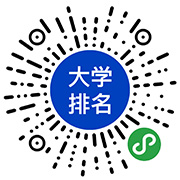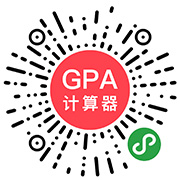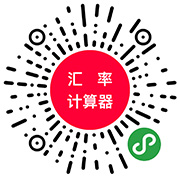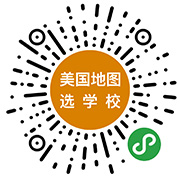2015年中華人民共和國普通高等學校
聯合招收華僑、港澳地區、臺灣省學生入學考試
英語
Matriculation English Test (MET15)
本試卷分第一卷(選擇題)和第二卷(非選擇題)兩部分。
注意事項:
1. 答卷前,考生務必將自己的姓名、准考證號填寫在答題卡上。
2. 將答案塗寫在答題卡上,寫在本試卷上無效。
3. 考試結束後.將本試卷和答題卡一併交回。
第一卷
I.聽力(共20小題,每小題15分;滿分30分)
聽完錄音後,從各題所給的四個中選項中選出能回答所提問題的最佳選項。所有錄音材料均僅讀一遍。
例:(錄音)Man: I wonder why the office is still not open.
Woman: But it‘s not yet eight. In fact, it’s only a quarter to eight.
When does the office open?
A. At 8: 30. B. At 8: 15. C. At 8: 00. D. At 7: 45.
答案是C。
聽第1段材料,回答第1小題
1. How many people are going to have dinner tonight?
A. Three B. Four. C. Five. D. Six.
聽第2段材料,回答第2小題
2. What is the man worried about?
A. His homework. B Setting a deadline.
C. Speaking in class D. Being friendly with Helen.
聽第3段材料,回答第3小題
3. What do we know about the man?
A. He has got Level A. B. He has failed an exam.
C. He doesn‘t work hard. D. He is sorry for the woman.
聽第4段材料, 回答第4小題
4. What is Thomas doing now?
A. Inviting Susan out. B. Encouraging Susan.
C. Asking for advice. D. Expressing his love.
聽第5段材料,回答第5小題
5. What might be a problem with the woman?
A. She lost her credit card. B. She failed to pay her bill.
C. She doesn’t use money wisely. D. She doesn‘t have a dress for a party.
聽第 6段材料,回答第 6、7小題
6. What does the man suggest?
A. Having a big sale. B. Lending Doris some money.
C. Going shopping. D. Staying home for the weekend.
7. What is the man most likely to do next?
A. Invite Helen to the mall. B. Borrow money from Doris.
C. Take Doris to hospital. D. Buy something cheap.
聽第 7段材料,回答第8至10小題
8. Where does the man want to go for his trip?
A. Rome. B. Toronto.
C. Berlin. D. Greenland.
9. What does the man care most about the trip?
A. The price of the flights. B. Time to begin the trip.
C. How long the trip takes. D. Where to stop over.
10. What is the most probable relationship between the two people?
A. Husband and wife. B. Driver and passenger.
C. Ticket seller and customer. D. Tour guide and tourist.
聽第 8段材料,回答第11至 13小題
11. When does the conversation take place?
A. Between classes. B. Before the morning class.
C. During the grammar class. D. After school.
12. How does the girl find her grammar class?
A. The book is too easy. B. She can manage it now.
C. The teacher is very boring. D. She has too much work to do
13. Who teaches the grammar class?
A. Mr. Lucas. B. Ms. Percy. C. Susan D. Adam.
聽第9段材料,回答第14至16小題
14. Why does Juliana wear unusual clothes?
A. She plans to surprise her fans. B. She wants to attract attention.
C. She practices a role in a play. D. She believes she’s already famous.
15. What can we infer from the dialogue?
A. Juliana has got a lot of fans. B. Juliana likes being famous.
C. The review is not favorable. D. The play makes Juliana famous.
16. How does the man sound?
A. Rather envious. B. Very proud. C. Very excited D. Rather doubtful
聽第10段材料,回答第17至20小題
17. Who is William Sydney Porter?
A. An American writer. B. A friend of O. Henry.
C. A visitor to Austin, Texas. D. A hotel manager.
18. What do we learn about the O. Henry Museum in the talk?
A. It became a museum in 1893. B. It always stayed where it was.
C. It is in a huge hotel. D. It is not easily found.
19. What effect does being in prison have on O. Henry?
A. He missed his wife‘s funeral. B. He doesn’t feel sorry any more.
C. He wrote some of his famous works. D. His success was delayed.
20. What is the lecture about?
A O. Henry and his surprising life. B. A visit to O. Henry Museum.
C. How one can succeed in life. D. Why O. Henry was put into prison.
11. 英語運用(共35小題,每小題1分:滿分35分)
A)單項填空(共15小題)
從A. B、C. D四個選項中,選出可以填入空白處的最佳答案。
21. - You want cream and sugar in your coffee?
-______________.
A. As you like B. Yes, please C. Please do D. Yes, with pleasure
22. -Would you get me a bar of chocolate from the kitchen?
-____one?!
A. The other B. Any C. Other D. Another
23. ____they say it aloud or not, most men expect their wives to be faithful.
A. If B. What C. Whether D. Even
24. Although they are pretending hard to be young, grey hair____.
A. gives them away B. takes them away C. puts them away D. keeps them away
25. The cost of the whole trip should be 500 dollars in ____ figures.
A. close B. round C. even D. natural
26. Interest rates are ____ those of our competitors.
A. as high twice as B. as twice high as C. as high as twice D. twice as high as
27. There‘s been an accident! ____ the doctor immediately!
A. To contact B. Contacting C. Contact D. To be contacted
28. I am sorry about our quarrel; you began it, ____.
A. though B. still C. yet D. ever
29. John hadn’t expected her ____ and praise him, but he had hoped a hearty thank-you for trying to save her.
A. fell over B. to fall over C. fall over D. falling over
30. The plant has three new generators ____ combined capacity is greater than that of the five we had before.
A. what B. that C. where D whose
31. I will meet you outside ____ main entrance of ____ Science Museum.
A. the; the B. the; / C. a; the D. /; /
32. It‘s good to have the children to ____ sometimes.
A. themselves B. itself C. oneself D. himself
33. It is my desire that all members of the family ____ once a year.
A. will gather B. gathered C. to gather D. gather
34. ____, Richie studied even harder after he entered the university.
A. He was a hardworking student B. Always a hardworking student
C. That he was a hardworking student D. While a hardworking student he was
35. It was very difficult for him to take a stand ____ the majority.
A. for B. in C. against D. to
B)完形填空(共20小題)
閱讀下面短文,掌握其大意,然後從36至55各題所給的四個選項中選出一個最佳答案。
A BRAVE WOMAN
Larrane Leach, a native woman, had a dream. She wanted to 36 a day care centre in her home. She 37 a nine-month college course and got her diploma. A month after she opened her day care centre, she was 38 five native pre-school children.
Every morning. the children sat in 39 and passed around a black and white feather. The child with the 40 talked and the others listened. After circle time, the group 41 outdoors.
Yesterday they were picking berries(漿果), and Pal, Larrane’s 42 , came along. Larrane gave the children empty jars 43 they left the house. While she was 44 them how to pick berries, one child ran off toward the trees. Larrane 45 after her, and while they were gone, an 80 kg cougar 46 two-year-old Mikey!
Larrane heard the other 47 screaming for help. She ran back and 48 the large cougar on top of the small boy. Mikey was screaming, “Help!”
Larrane 49 the cat by the neck “All was thinking was ‘Save Mikey’, “she said. Larrane 50 the cougar around to face her and 51 the cat‘s paws to stop the animal from scratching (抓傷) her. “I was 52 . ’What do I do now?”‘ said the 154 cm day care worker. She called to Pal and 53 the cougar to the ground. She took Mikey in her arms and ran as the dog chased(追趕) the 54 up a tree. “Thank God for Pal. He saved the day, “ said Larrane. Mikey’s mother was happy Larrane 55 the cougar. She said, “Larrane saved my son‘s Life. “
36. A. open B. look at C. work at D. improve
37. A. ran B. bought C. taught D. took
38. A. catching up with B. looking after C. worried about D. careful with
39. A. a park B. a forest C. the playground D. a circle
40. A. feather B. friend C. food D. jar
41. A. talked B. slept C. went D. came
42. A. brother B daughter C. son D dog
43. A. if B. as C since D. though
44. A. making B. giving C. showing D helping
45. A cheered B. ran C. shouted D. begged
46. A. ate B. jumped on C. played with D. stole
47. A. children B. mothers C. teachers D. nations
48. A. attached B. caged C. saw D. shot
49. A. took over B. touched C. pushed D. got hold of
50. A. turned B. sent C. drove D. shocked
51. A. left B. bent C. forced D. tore
52. A. thinking B. screaming C. clear D. afraid
53. A lifted B. sat C. placed D. threw
54. A cherries B. child C. cat D. fear
55. A. guided B. killed C. fought D. saved
III. 閱讀理解(共20小題,每小題2. 5分;滿分50分)
閱讀下列短文,並做每篇後面的題目。從四個選項中,選出能回答所提問題或完成所給句子的最佳答案。
A
Remember back to when you were a young child. Can you recall who your heroes were? Were they people in your family? Were they from books, or TV, or movies?
During their teen years, young people search for two types of heroes. The first type of hero they look for is someone they can admire. Too often, however, they confuse superstars with heroes. Most TV or movie superstars aren’t really heroes—they‘re celebrities(名流),products of the media. The danger comes when young people confuse the heroic with the famous. In fact, because they don’t have real heroes, people of all ages turn to fantasy(想像中的) heroes. And the media, in turn, fill this need with Indiana Jones, Superman, Conan the Barbarian, James Bond, Luke Skywalker, and other fantasy figures.
The second type of hero young people sometimes choose stands for disobedience(叛逆) toward parents and rules. An example is Bluto Blutarsky in the movie Animal House. Bluto is a terrible troublemaker. Of course, some teenagers may actually admire Bluto‘s personal qualities.
Are these real heroes? Not really, because who they are and what they do are purely a dream. Real heroes are ones you love and want to keep as heroes forever. Celebrities are easy come, easy go.
But don’t count real heroes out yet. Even in an age when people say there are no heroes—only celebrities—there are countless heroes. There are many heroes who are not so well known. They have risked life, or anything valuable on a matter of principle.
Everyone needs heroes to admire. Whether They‘re movie stars, teachers, relatives, nextdoor neighbors, or strangers we’ve read about, we need them. By what they do, heroes show us that we, too, can do something outstanding, even if we are only “ordinary” people.
56. what problem do young people often have about “heroes”?
A. They search for heroes in their dreams, B. They never learn from heroes.
C. They are uncertain about who to admire. D. They often love troublemakers.
57. What is the author‘s opinion about the topic?
A. There are very few real heroes. B. Heroes can be famous people.
C. Principles cause heroes’ death. D. All people can do some heroic deeds.
58. Young people need heroes mainly because they want to____.
A. have role models B. become superstars
C. admire celebrities D. love fantasy figures
59. Which of the following can be the best title for the text?
A. Becoming Heroes B. Everybody Needs Heroes
C. Celebrities or Heroes? D. Why Heroes?
B
In well over half the languages of the world, it is possible to change the meaning of a word simply by changing the pitch (聲高) level at which it is spoken. Languages that allow this are known as tone languages.
The number of tones(音調) in a language can be different. The simplest systems have only two tones, high vs low (e. g. Zulu); Yoruba has three (high, mid, low); Lushai has four (extra-high, high, mid, low); Thai has five (low, mid, and high-falling, high-rising, low-falling-rising); Cantonese Chinese has six(mid-and low-level, high-and low-falling, and high-and low-falling, and high-and low-rising). Tonal differences may affect either the vocabulary or the grammar of a language. Probably the most widely known case is Mandarin Chinese, which has four tones.
Grammatical uses of tone are also common. In several languages of West Africa (e. g. Twi, Bini), a change of tone signals the difference between certain tense forms. In Bini, for instance, a low tone is used for present tense, and a high or high-low tone for past tense.
When a set of tones is produced. adjacent (鄰近的) tones tend to influence each other. For example, a low tone that has a high tone in front of it will usually begin with a downward pitch movement. In particular, the intonation system of the language can cause changes in the pitch level of tones. In a sentence where there is a gradually falling intonation, the tones towards the beginning of the sentence will be spoken at a higher level than the tones towards the end. This gradual lowering of tones is known as downdrift. It may even result in a high tone at the end of a sentence having the same pitch level as a low tone at the beginning!
60. What is the text mainly about?
A. Tone languages. B. The number of tones.
C. Grammar and tones. D. Changes in tones.
61. Which of the following seems to have the largest number of tones?
A. Thai language. B. Mandarin Chinese.
C. Lushai. D. Cantonese Chinese.
62. What is special about some tone languages?
A. The same words may have different pitches.
B. The tones have little influence on meaning.
C. Higher pitches refer to things in the past.
D. Different tones are used for different tenses.
C. The low tones are spoken at a Lower level.
D. The low tones end with a higher tone.
C
Higher Education in the United States Higher education in the United States includes any program of study at two-year colleges, four-year colleges and universities, and graduate schools. There are more than 4, 100 community colleges, colleges, and universities in United States. Four-year colleges grant undergraduate bachelor‘s degrees (B. A. or B. S. ). Two-year colleges, often called community colleges, offer the Associate of Arts or the Associate of Science degrees (A. A. or A. S ). The words college and university are often the same, but it is generally understood that a university can offer graduate degrees as well. These degrees can be quite specialized, such as a Master of Arts in a particular subject or even doctorate degrees.
American colleges and universities may be public, private, or religious(宗教的). Public universities are owned by the states. Students pay tuition (學費) at public universities, but those who have lived in the state for a certain period of time do not pay as much as student from outside the state. The annual average cost of tuition, fees, and room and board at universities was $36, 564 in 2014. These costs, however, depend on the size, location, reputation(聲譽), etc. of the university.
Private and religious institutions can be very expensive because they do not receive the same type of funding that public schools do, although they may get some money from the state for certain programs. Some American private universities are considered the best in the nation, if not in the world. but the costs of these schools are very high. It is usually not necessary to be a member of a particular religion to attend the religious school.
Last, there are also some technical institutions that are privately owned, like businesses. These technical institutes offer two-year programs in such fields as automotive engineering, business, and electronics. The training is very specialized, and the goals of the students are specifically related to a particular occupation.
64. What degrees do the community colleges offer?
A. Bachelor’s degrees. B. Master‘s degrees.
C. A. A. or A. S. D. Doctorate degrees.
A. Room and board are free.
B. They are Supported by the states.
C. The average cost is over $36, 564 per year.
A. They receive funding from the government.
B. They are located near where students live.
C. They are excellent in education.
D. They provide some financial help.
67. Where can we possibly find the text?
A. A fashion magazine. B. A storybook.
C. A travel guide. D. A government website.
D
James Murray was a scholar who wrote articles about the history of languages, particularly English. In the mid-1870s he was earning his living teaching at Mill Hill School, a private school for boys, near London, England, where he lived with his wife, Ada, and their children. Murray was an active member of the Philological Society, and in the summer of 1876, a senior member. Frederick Furnivall, asked if he would become editor of a new dictionary.
Murray was aware that the Philological Society had been working on a new dictionary for twenty years and that Furnivall had become editor of the project in 1864. The society members wanted to publish a dictionary that would show how words came into being, giving quotations(摘錄) from early and later works that would show how the meaning of each word had changed. Furnivall had sent old books to volunteer readers, asking them to find quotations that showed early usage of words. In the beginning, readers had been enthusiastic. but after ten years of sending in small pieces of paper. with no news of how the overall project was progressing, many readers had lost interest. Furnivall had become stuck with the huge amount of work and had never actually started compiling(編纂) the dictionary.
Murray agreed to take over Furnivall’s job as editor on condition that the society find a publisher. In the late spring of 1878, the directors of the Oxford University Press agreed to publish the dictionary. They offered to provide a salary and expenses for the editor, pay for the costs of printing, and find buyers who would buy each part as it was published over the ten years it was believed necessary to complete the project.
The society hoped the new dictionary would compete favorably with the 1864 edition of Webster‘s An American Dictionary of the English Language, the best-selling dictionary on the market. The new dictionary would be seven thousand pages long-four times the size of Webster’s, because it provided information about the history of words, whereas Webster‘s dictionary just explained the meaning of words.
68. What did J. Murray do for a living before be was invited to edit a dictionary?
A. Writing. B. Managing the Philological Society.
C. Teaching D. Doing research.
69. The project people gathered information about history of words from____.
A. various books
B. actual language use
C. members of the society
D. famous quotations of the time
70. What can we infer about Murray’s life after be became the editor of the dictionary?
A. He remained an active member of the society.
B. He put all his attention on the work.
C. He received pay from the society.
D. He kept looking for buyers.
71. What is the biggest difference of Murray‘s dictionary from others?
A. It focuses on where words came from.
B. It gives exact meaning about words.
C. It was written by thousands of people.
D. It took a very long time to complete.
E
Welcome to Affaire de Coeur!
Your online connection for meeting, greeting, and reading about your favorite authors and their latest books. Affaire de Coeur, a book review magazine, brings you the most recent articles and reviews available on the web. On our pages you will find honest book reviews from all genres, fiction and non-fiction.
AdC’s blogs and articles:
Life is a Roller Coaster Ride by Natasha Moore
The song may say Life is a Highway, but I‘ve found my life has bad so many ups and downs that it often feels more like a roller coaster. As I write this, I just worked my last day at the day job I held for thirty- seven years.
Desert Survival by Kat Martin
As a writer, I am always looking for new ideas. But I often find that my past experiences can be an important part of the story. Have you ever spent time in the desert? Comment and you could win a signed
copy of Kat’s latest release, Against the Odds.
The Inspirations of Old Homes by Beth Trissel
Passion for the past and research into those who‘ve gone before me is the underlying inspiration for all my work, as is the beautiful Shenandoah Valley where I live. My Scots-Irish ancestors(祖先) were among the earliest settlers here. Did you know Virginia has more ghost stories than any other state?
Embracing Happily Ever After Fairytale Style By Hope Tarr
I think I was probably born to be a romance writer, As far back as I can remember I’ve been in love with love and the notion of soul mates-that there‘s a perfect partner, a One True Love for each of us, someone who will view us through love’s rose-colored lenses(鏡片).
A. Book reviews. B. Places to travel.
C. Ancient articles. D. Ticket information.
73. Which book should you comment on if you want the author‘s signature?
A. Desert Survival B. Life is a Roller Coaster Ride
C. the inspirations of Old Homes D. Against the Odds
74. Which book mentions that Virginia has got the most ghost stories?
A. Desert Survival B. Life is a Roller Coaster Ride
C. The Inspirations of Old Homes D. Embracing Happily Ever After Fairytale Style
75. Which author regards himself/herself a romance writer?
A. Kat Martin. B. Natasha Moore. C. Beth Trissel. D. Hope Tarr.
第二卷
IV.短文改錯(共15小題,每小題1分;滿分15分)
此題要求你對一段文章改錯。先對每一行作出判斷是對還是錯。如果是對的,在該行右邊橫線上畫一個勾(√);如果有錯誤(每行不會多於一個錯誤),則按情況改錯如下:
此行多一個詞:把多餘的詞用斜線(\)劃掉,在該行右邊橫線上寫出該詞,也用斜線劃掉。
此行缺一個詞;在缺詞處加一個漏字元號(∧),在該行右邊橫線上寫出該加的詞。
此行錯一個詞:在錯的詞下劃一橫線,在該行右邊橫線上寫出改正後的詞。
注意:原行沒有錯的不要改。
例:
When I have free time I go ∧ a long walk Some (a)for
people read the books or watch television while (b)the
others have sports. Charles and Linda Mason do all (c)√
of these things as well as climbed buildings. (d)climbing; climb
V.畫面表達(共1題,滿分20分)
下面是某校關於中學生雙休日活動現狀的一份調查結果。請借助資料,以Have Fun on Weekends!為題目,給English on Campus寫一篇稿件,就中學生應如何過雙休日發表你的看法。
注意:
1.詞數100左右;
2. 無需使用全部資料;
3. 適當拓展以使內容連貫。









 大马U.S.News排名
大马U.S.News排名 2022大马QS排名
2022大马QS排名 马来西亚QS亚洲排名
马来西亚QS亚洲排名 高考后留学美国
高考后留学美国






 香港大学
香港大学 香港中文大学
香港中文大学 香港科技大学
香港科技大学 香港理工大学
香港理工大学 香港城市大学
香港城市大学 香港浸会大学
香港浸会大学

